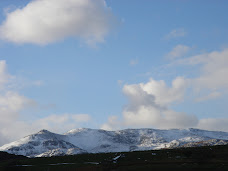A spokesman for the Mayor of the West Midlands said: “The extension of the West Midlands Metro tram line, which is now under construction from Wednesbury to Dudley, Merry Hill and Brierley Hill, was identified as the most cost-effective way of providing this improved connectivity for both local residents and businesses. The most cost-effective at about ten more expensive per Km to construct the tram on roads and railway than to put the commuter and regional trains back on the full, unused length, to finish the ready-built principal, mainline railway. Existing buses would meet the trains - called integrated transport.
“This is largely because the use of light rail enables a high frequency service to operate providing direct access to both the heart of Dudley town centre and the Merry Hill shopping centre. Buses already provide direct access to both! Trams to Merry Hill will be an additional attraction and spur to desert Dudley town shops.
“This would not be possible with a traditional train service, which would be unlikely to justify more than a half-hourly frequency service and which would be confined to the former railway alignment rather than providing access to those areas to which people actually want to travel. The railway alignment from Derby to Devon via Dudley or, Burton on Trent to Bristol via Brierley Hill is exactly where people want to travel. Have buses taking people to the railway station and meeting the train at the other end!
“The West Midlands Metro Wednesbury – Brierley Hill extension will also be connected onto the existing West Midlands Metro line at Wednesbury, providing direct links to Birmingham, Wolverhampton and West Bromwich and will also provide the opportunity to change at Dudley Port Station for local train services. Having the trains back on the railway line would do all this just as well. And did do for 100 years until we fell in love with cars and deserted trains in the 60s.
Now, public transport is made worse with, sometimes, an additional change needed with trams added to the mix. Multi-mixed up transport! Eg, public transport passengers on the eleven bus routes using Hagley Road.
“Trains stopped running on this route many decades ago and their reinstatement has not been a priority for the rail industry. The first priority was to destroy railway lines for roads and buildings. Secondly, for HS1, HS2 and Cross-Rail to be built, instead. However, as a result of the investment in Metro we are seeing a number of bridges and structures along the route repaired or removed and rebuilt. This could potentially open up options longer term for the development of freight and passenger rail services, in parallel with Metro, along the wider Walsall to Stourbridge route in future.” The existing or new bridges and tunnels are NOT being widened to take trains and trams in parallel. Only freight trains may be possible at night when the trams are not running. The experts are wrong. The false and misleading magic of "passive provision" was always made up, concocted, to brush off those who had seen through their bad practice. Indeed, their folly.
















No comments:
Post a Comment